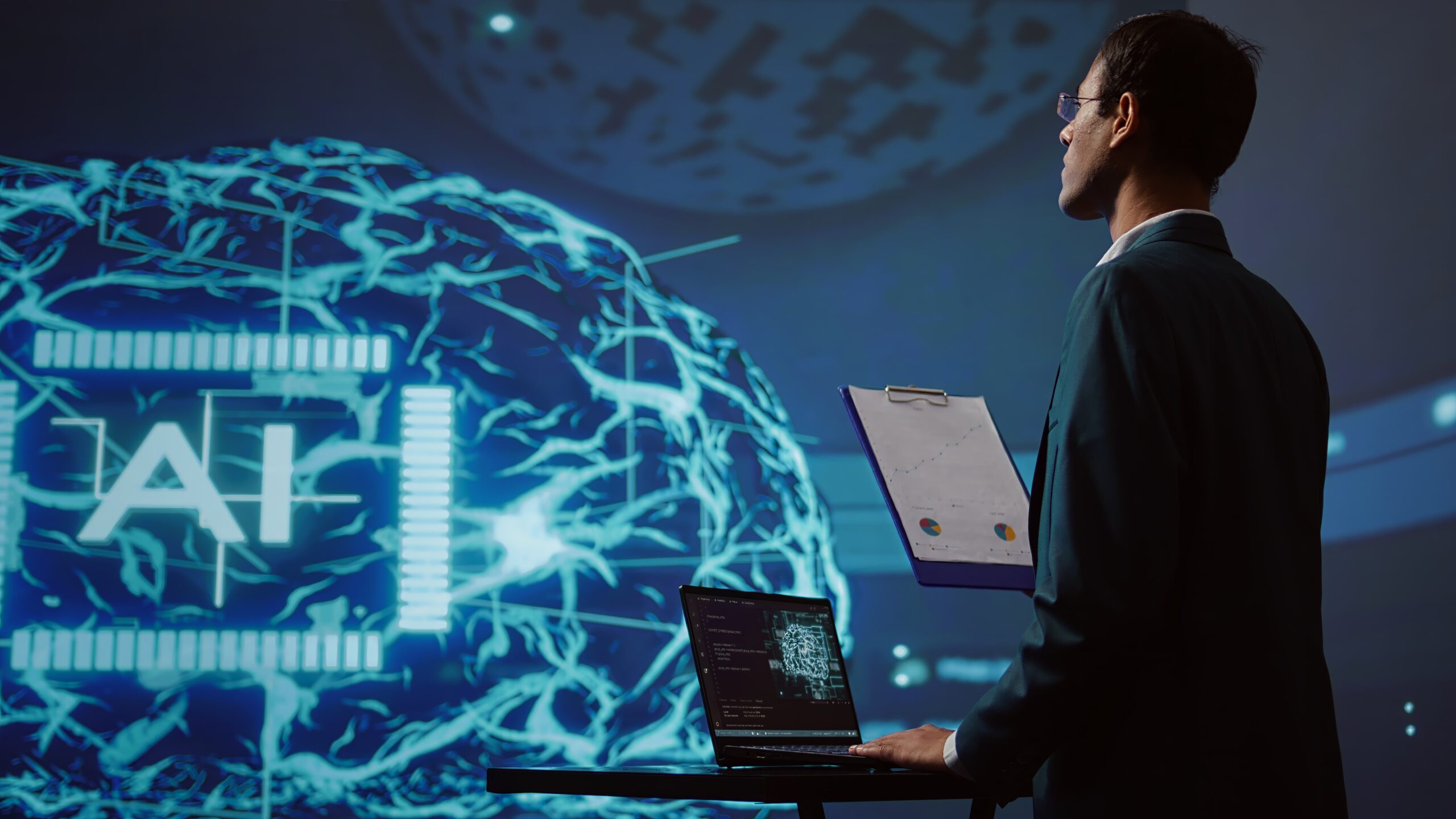Technology
How Elon Musk’s xAI Is Disrupting the AI Industry in 2025?
How Elon Musk’s xAI is changing the AI game in 2025 is a topic gaining massive attention across the tech world. With his bold vision and track record of disruption, Elon Musk’s xAI has emerged as a formidable force in the artificial intelligence space. Founded to challenge the dominance of existing AI giants, xAI aims to build “truth-seeking” AI models that are safer, more transparent, and aligned with human values. In 2025, xAI has introduced significant breakthroughs in reasoning-based models, offering alternatives to traditional chatbot AI with a focus on factual accuracy and deeper contextual understanding. Musk’s integration of xAI with other ventures—like Tesla, SpaceX, and the X platform (formerly Twitter)—is pushing AI into new frontiers, from autonomous driving to real-time social media moderation. As xAI continues to evolve, it is reshaping not only the competitive landscape but also the ethical and technological standards of AI development worldwide.
What Is xAI? Elon Musk’s Vision for Ethical Artificial Intelligence
xAI, founded by Elon Musk in 2023, is a cutting-edge artificial intelligence company with a bold mission: to build AI systems that prioritize truth, transparency, and safety. Unlike many mainstream AI organizations that focus primarily on performance and market dominance, xAI is positioned as a challenger to current norms in AI development. Elon Musk has long expressed concerns about the unchecked growth of artificial intelligence, particularly its potential to become uncontrollable or biased. xAI was created as a direct response to these fears, with the goal of ensuring that AI serves humanity ethically and responsibly.
By 2025, xAI has attracted top researchers from DeepMind, OpenAI, Google, and other leading tech firms. Its flagship models are designed to mimic human-like reasoning rather than simply predicting the next word. This makes xAI’s approach unique in the AI space. The company also emphasizes open communication with the public, sharing insights about how its models work—something that sets it apart from more secretive competitors.
Read more:- Ways Technology Is Shaping The Entertainment Industry
Key Innovations by xAI That Are Redefining AI in 2025
In 2025, xAI is making waves with innovations that stand out in the rapidly evolving AI landscape. One of the most notable advancements is its development of reasoning-based models. Unlike conventional AI that relies heavily on statistical predictions, xAI’s systems are designed to understand and process information in a way that mirrors human logic. This makes them better suited for tasks requiring contextual awareness and fact-based conclusions, significantly reducing the risk of hallucinated or biased responses.
Another key innovation is xAI’s “truth-seeking” architecture. These models are built with mechanisms that cross-reference sources and validate outputs against factual data, aiming to limit misinformation and improve the reliability of AI-generated content. xAI is also experimenting with hybrid integrations—linking its AI models with Musk’s other ventures, like Tesla’s autopilot system and SpaceX’s mission control analytics. The seamless collaboration across industries positions xAI as more than just an AI company—it’s becoming a core intelligence engine behind futuristic applications.
How xAI Competes with OpenAI, Google DeepMind, and Other AI Giants
The AI race in 2025 is more intense than ever, and xAI has carved out a competitive edge by focusing on transparency, safety, and logic-driven development. While OpenAI, Google DeepMind, and Anthropic lead in model sophistication and large-scale deployment, xAI stands apart with its philosophical approach to AI ethics and alignment. Elon Musk’s vocal critique of closed-source AI labs has fueled xAI’s open and “truth-first” development style, appealing to users and developers seeking more control and understanding of how AI decisions are made.
xAI competes aggressively by hiring top talent, releasing high-performing models like Grok (its AI chatbot integrated into X, formerly Twitter), and promising tighter integrations across industries. Musk’s influence in sectors like automotive, aerospace, and social media gives xAI a strategic advantage—offering real-world applications that competitors may lack. Instead of just being another chatbot or language model, xAI is establishing itself as a foundational AI layer across multiple technology domains.
Read more:- How Technology Impacts the Food Industry?
Real-World Applications of xAI Technology Across Industries
xAI’s technologies are already being implemented in real-world scenarios across a variety of industries in 2025. In the automotive sector, xAI contributes to Tesla’s self-driving algorithms, improving decision-making in complex road conditions through enhanced contextual understanding. Unlike traditional machine learning models that rely heavily on pattern recognition, xAI’s reasoning-based systems allow vehicles to interpret scenarios more intelligently and react safely.
In aerospace, SpaceX benefits from xAI’s data analysis capabilities, especially in optimizing launch procedures and mission planning. Musk’s social media platform X also integrates xAI to moderate content, improve user interactions, and offer advanced chatbot features for businesses and creators. Healthcare is another promising area where xAI tools are assisting in diagnostic support and patient data analysis while maintaining privacy and ethical standards.
By offering versatile and scalable solutions, xAI is not just theorizing about the future of AI—it is actively shaping it across sectors. This practical impact sets it apart from many research-focused AI companies that are still in experimental stages.
Conclusion
Elon Musk’s xAI is changing the AI game in 2025 by prioritizing truth, transparency, and real-world integration. Unlike traditional AI models focused on speed and scale, xAI introduces reasoning-driven systems that aim to think more like humans and less like machines. Through its strategic innovations and collaborations with Tesla, SpaceX, and X (formerly Twitter), xAI is not just challenging AI norms but redefining how artificial intelligence can responsibly serve society. As the technology continues to evolve, xAI stands as a bold reminder that ethical, transparent AI isn’t just possible—it’s essential for a better digital future.
FAQs
1. What is Elon Musk’s xAI, and how is it different from other AI companies?
xAI is an artificial intelligence company founded by Elon Musk, focused on building safe, ethical, and transparent AI models. Unlike other AI companies, xAI emphasizes truth-seeking and reasoning-based intelligence rather than just predictive accuracy, making it stand out in the rapidly growing AI landscape.
2. How is xAI impacting industries like automotive and aerospace in 2025?
xAI’s AI models are integrated into Tesla’s self-driving system and SpaceX’s mission analytics, offering smarter decision-making and enhanced data interpretation. These real-world applications showcase how xAI is pushing boundaries beyond traditional AI use cases.
3. How does xAI compare to OpenAI and Google DeepMind?
While OpenAI and Google DeepMind focus on cutting-edge model performance, xAI differentiates itself with a focus on safety, ethics, and human-aligned reasoning. Its integration across Musk’s ventures also provides unique real-world deployment opportunities.
4. What are the main innovations introduced by xAI in 2025?
xAI’s key innovations include reasoning-first AI models, truth-verification mechanisms, and real-time integration with platforms like X (Twitter). These advancements help reduce misinformation and improve contextual understanding in AI outputs.
5. Why is xAI considered a game changer in the AI space?
xAI is considered a game changer because it challenges the current AI development approach by focusing on transparency, logic, and ethical alignment. Its real-world applications across industries make it a powerful force in shaping AI’s future.







